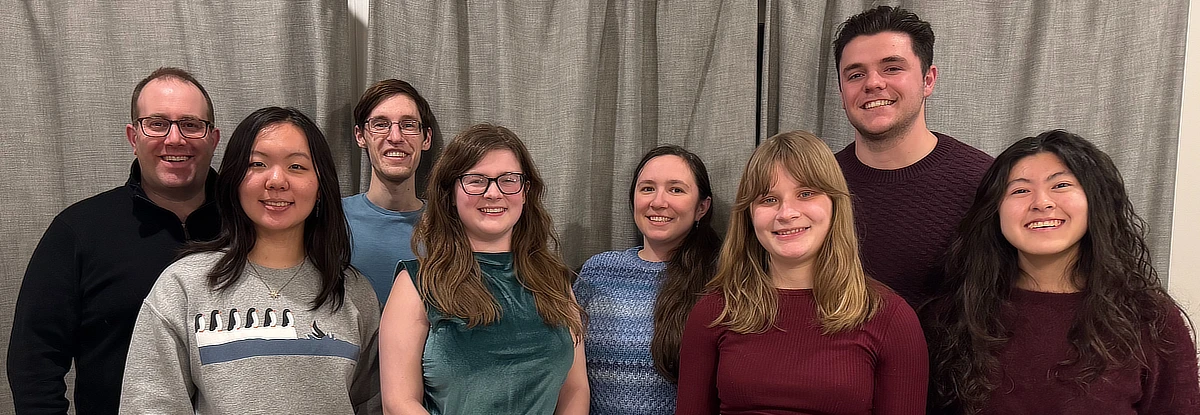
Microbes are critical for the health of humans and animals. The microbial consituents of animals—their microbiomes—are often newly acquired during each host generation. Our lab asks how beneficial bacteria are reproducibly acquired from the environment by animal hosts.
We focus on the natural Vibrio-squid system to understand the processes that underlie colonization. Both organisms may be obtained directly by environmental collection, cultured independently, and then reintroduced in the laboratory to discover and interrogate molecular communication. Studying this powerful model we are investigating signal transduction within and between colonizing partners.
Animals are symbiotic superorganisms, composed of eukaryotic cells and specific microbial residents that perform essential functions for their host. In humans there is evidence that half of the cells in our body are microbial. Many of these organisms reside in human gut, skin, and oral cavity, where the presence of healthy communities is critical for proper development of the immune system, of the host tissue, and for nutrient acquisition.
Model systems are leading to illustrate the molecular mechanisms that allow for specific relationships to be recapitulated during each host generation. Our research uses the simplified symbiosis between the Hawaiian bobtail squid and its luminous light-organ bacterial symbiont, Vibrio fischeri, to ask two broad questions: (1) During each new host generation, how does molecular communication ensure that the host becomes colonized exclusively with the correct symbiont? and (2) How do microbe-host interactions evolve to lead to new associations or to maintain robust interactions when the underlying signaling changes?
There are three broad stages -- termed initiation, accommodation, and persistence -- during which specific bacterial behaviors are required for colonization. To identify the molecular bases underlying these important behaviors, we are applying a high-throughput genetic approach to identify and characterize novel colonization factors. We have identified over 200 such factors and are combining genetic and imaging approaches to characterize their role during symbiosis.
The squid hatch into seawater that contains one million bacteria in every milliliter, yet fewer that 0.1% of those bacteria are the V. fischeri symbiont. Nonetheless, communication between host and microbe lead to host colonization exclusively by V. fischeri.
We are interested in the molecular signal transduction pathways that underlie the specificity. We have previously demonstrated the importance of the acquisition of the biofilm regulator, RscS, in squid colonization by North Pacific Ocean symbionts. We are following up on those studies to examine how regulatory pathways evolve to facilitate new microbe-host relationships and to determine how they are retained during changes in genome content.

Please contact Dr. Mandel directly with a brief statement on your training, specific research and career goals for postdoctoral training, curriculum vitae, and contact information for three references.
Dr. Mandel is a trainer in the following graduate programs: Microbiology Doctoral Training Program, Genetics Training Program, and the Graduate Program in Cellular and Molecular Biology. Admission to the University of Wisconsin-Madison and degree requirements are handled by the respective programs. The programs include fall laboratory rotations. You may contact Dr. Mandel directly if you are interested in joining the lab for your thesis research.
The Mandel Laboratory includes undergraduate students conducting independent research, in addition to work-study students contributing to the research mission of the group. For either research or work-study positions, please contact Dr. Mandel directly and list your year of study, your background including relevant coursework, and what interests you about our research.
Lab and Shipping Address
Mark Mandel Laboratory
University of Wisconsin-Madison
1550 Linden Drive
Microbial Sciences Building 5245
Madison, WI 53706
Lab Phone: (608) 261-1171
Office
Microbial Sciences Building 5155
Office Phone: (608) 261-1170
Email: mmandel@wisc.edu